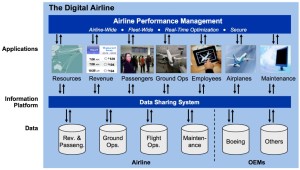I had worked with WSO2 during the ZapThink days when the company was just getting rolling, so I was particularly interested to see how far they’d come in the intervening time, and in particular, to hear their business agility story. The call did not disappoint.
 WSO2 is an open source middleware vendor based in Sri Lanka, with offices in Silicon Valley and London, and a support team in Bloomington, Indiana. They were founded in 2005 with the goal of being the best middleware vendor in the market – and it could very well be argued that they are at the least one of the best, based upon the quality of their offering.
WSO2 is an open source middleware vendor based in Sri Lanka, with offices in Silicon Valley and London, and a support team in Bloomington, Indiana. They were founded in 2005 with the goal of being the best middleware vendor in the market – and it could very well be argued that they are at the least one of the best, based upon the quality of their offering.
The world of enterprise infrastructure software is particularly susceptible to marketing buzzwords, and WSO2 plays this game as well as any – but the real story here is the reality under the covers. Over the last decade they have brought a number of products to market, and spent many thousands of person-hours maturing those products and ensuring they work together properly. The reason I point out this fact is because it stands in stark contrast to many of the enterprise-centric open source efforts of the 2010s – and yes, I’m looking at you, OpenStack, CloudFoundry, and Docker, to name the best known.
These three newer vendors are all the rage today – buckets of money, crowds of developers, and buzz out the wazoo. The result is a mad rush to get their software out the door, even though it may still be immature, in particular how the various modules work together or work with other products – or not, as the case may be.
WSO2 is open source as well, and has its own established community of developers and a measure of buzz. But their deliberate, focused approach to building software has led to a suite of mature products that have a singular advantage in the buzzword wars: they actually work – and work together. In fact, WSO2’s products work with OpenStack, CloudFoundry, and Docker – helping to fill in gaps in the newer products as they gradually mature.
The WSO2 Agility Story
Many products in the WSO2 suite can easily serve to support Agile Architecture at their customers, from their API management tool to their Service intermediary (aka their ESB, which eBay uses to process over a billion transactions per day). But their most exciting agility story today is their Enterprise Private PaaS – or for you buzzword fans, their Enterprise DevOps PaaS. True, they play the buzzword game with this product (or actually, suite of products), but the story isn’t the buzzwords – it’s the mature gear that makes the DevOps PaaS offering work.
The proof is in the pudding: WSO2 technology underlies the Boeing Edge (see the diagram below). Boeing describes Edge as “the industry’s largest portfolio of services, support and solutions. It’s organized around the way airlines do business, designed to optimize the performance of their airplanes and operations.” In other words, Boeing Edge is a B2B marketplace/Community Cloud PaaS/enterprise app store/B2B integration hub/Cloud Service Broker all rolled into one. It exposes complex enterprise legacy environments, not only at Boeing but also at various Boeing partners, and drives a wide range of Airline Performance Management applications that support Boeing’s customers as well as numerous third parties in the airline ecosystem. Boeing Edge is no toe-in-the-water Cloud experiment. It’s a complete next-generation enterprise solution built on WSO2 open source technology.

The Intellyx Take
Having companies like Boeing and eBay on the customer list unquestionably shows scalability and maturity, but does it show support for business agility? In WSO2’s case, absolutely. There’s no way Boeing Edge would work if it were based solely on “traditional” integration technologies. Furthermore, it leverages SOA practices, but even so, SOA alone wouldn’t provide a sufficiently solid agility story. So, what is it about WSO2’s products that support business agility at Boeing and among their other customers?
WSO2’s agility story takes advantage of a combination of many of the core practices that we talk about at Intellyx: declarative programming, dynamic API abstraction, continuous delivery, automated policy enforcement, Cloud friendliness, and a coherent architectural approach that unifies their product line. Other vendors’ stories may focus on one or two of these practices, but WSO2’s primary differentiator is the completeness and maturity of their offering. Other open source vendors in the enterprise space take note: buzz and buckets of cash don’t build good software. Years of good old fashioned hard work do.
At the time of writing Intellyx has no business relationship with WSO2.



